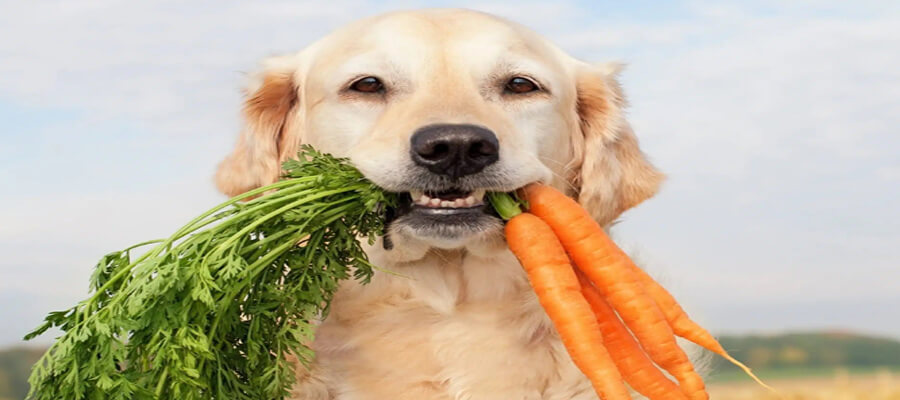
Updated on | by Critter Nets - Blogs
Is a Vegetarian Diet Safe for Dogs
Is a Vegetarian Diet Safe for Dogs A Comprehensive Guide for Pet Owners
As more pet owners become conscious of health and ethical considerations, the question arises: is a vegetarian diet safe for dogs While dogs are often classified as carnivores, they are technically omnivores, meaning they can thrive on a diet that includes a variety of foods, including plant-based ingredients. In this comprehensive guide, we will explore the safety, benefits, and potential drawbacks of feeding your dog a vegetarian diet.
Understanding Canine Nutrition
Nutritional Requirements of Dogs
Before diving into vegetarian diets, it’s essential to understand the nutritional needs of dogs. Dogs require a balanced diet that includes:
Essentials for Your Newly Adopted Pet
Welcoming a shelter pet into your life is a beautiful journey. Here are some handpicked items to help your new friend feel safe, loved, and right at home:
- Proteins: Essential for growth, maintenance, and repair of tissues.
- Fats: Provide energy and support cell structure.
- Carbohydrates: Serve as an energy source and aid digestion.
- Vitamins and Minerals: Crucial for metabolic functions, immune health, and overall well-being.
A well-balanced diet typically contains animal-based proteins, but many of these nutrients can also be sourced from plant-based foods.
Can Dogs Thrive on a Vegetarian Diet
Research and Evidence
While there is limited scientific research specifically on vegetarian diets for dogs, many pet owners report success with plant-based feeding. Studies suggest that dogs can be healthy and live long lives on a vegetarian diet, provided their nutritional needs are met.
Benefits of a Vegetarian Diet
- Ethical Considerations: Many pet owners choose vegetarian diets for ethical reasons, such as animal welfare and environmental concerns.
- Weight Management: Vegetarian diets can be lower in calories and fat, which may help prevent obesity in dogs.
- Digestive Health: A diet high in fiber from vegetables can promote healthy digestion and regular bowel movements.
- Allergy Management: Some dogs are allergic to specific meats. A vegetarian diet may help avoid these allergens.
- Variety of Nutrients: A well-planned vegetarian diet can provide a wide range of vitamins, minerals, and antioxidants from fruits, vegetables, and whole grains.
Potential Drawbacks of a Vegetarian Diet
Nutritional Deficiencies
One of the main concerns with feeding a vegetarian diet to dogs is the risk of nutritional deficiencies. Some essential nutrients found primarily in animal products may be lacking, including:
- Protein Quality: While plant proteins can provide essential amino acids, they may not be as complete as animal proteins. It’s important to combine different plant sources to ensure a complete amino acid profile.
- Vitamin B12: This vitamin is crucial for a dog’s nervous system and blood health and is primarily found in animal products. Vegetarians may need to supplement B12 in their dog’s diet.
- Omega-3 Fatty Acids: Dogs require these for skin and coat health. Plant-based sources (like flaxseed) may not be as effective as those from fish oil.
- Iron and Zinc: These minerals are more bioavailable in meat sources. Ensure that the vegetarian diet includes sufficient sources of these nutrients.
Digestive Sensitivity
Some dogs may have sensitive digestive systems that do not respond well to a sudden change in diet. Transitioning too quickly to a vegetarian diet may lead to gastrointestinal upset, including diarrhea and vomiting.
Transitioning Your Dog to a Vegetarian Diet
Consult a Veterinarian
Before making any dietary changes, consult your veterinarian. They can provide guidance tailored to your dog’s specific health needs and help you create a balanced vegetarian diet.
Gradual Transition
- Start Slowly: Gradually introduce vegetarian meals by mixing them with your dog’s current food. This approach allows their digestive system to adjust.
- Monitor Health: Keep an eye on your dog’s health during the transition. Watch for changes in energy levels, coat condition, and stool quality.
- Supplement as Needed: Based on your vet’s recommendations, consider adding supplements to address potential nutritional gaps (e.g., vitamin B12, omega-3 fatty acids).
Choosing Quality Vegetarian Dog Food
If you prefer to feed commercial vegetarian dog food, ensure that it meets AAFCO (Association of American Feed Control Officials) standards for complete and balanced nutrition. Look for brands that offer high-quality ingredients and are transparent about their nutritional content.
Homemade Vegetarian Dog Food Recipes
If you choose to prepare homemade vegetarian meals, ensure that they are nutritionally balanced. Here are some ingredients to include:
- Protein Sources: Lentils, chickpeas, quinoa, and tofu.
- Vegetables: Carrots, spinach, sweet potatoes, and peas.
- Fruits: Blueberries, apples (without seeds), and bananas.
- Healthy Fats: Olive oil or flaxseed oil for omega-3 fatty acids.
Sample Recipe: Veggie and Quinoa Bowl
-
Ingredients:
- 1 cup cooked quinoa
- 1/2 cup cooked lentils
- 1/2 cup steamed carrots
- 1/2 cup steamed broccoli
- 1 tablespoon olive oil
- Instructions:
- Combine all ingredients in a bowl.
- Mix well and let cool before serving.
- Store leftovers in the refrigerator for up to three days.
Conclusion
A vegetarian diet can be safe for dogs if it is well-planned and nutritionally balanced. While there are benefits to this diet, potential drawbacks should be carefully considered. Consulting with a veterinarian is crucial to ensure your dog’s health needs are met throughout the transition.
Whether you opt for commercial vegetarian dog food or homemade meals, focus on providing a variety of nutrient-dense ingredients that support your dog’s overall health and well-being. With the right approach, your dog can thrive on a vegetarian diet, leading to a happier, healthier life.
Affiliate Products
We may earn a small commission when you shop through our links — it helps us keep sharing love and care for every dog out there, at no extra cost to you.

